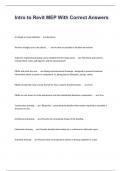FIRST DAY AFTER THE WAR-Mazisi Kunene
We heard the songs of a wedding party
We saw a soft light
Coiling round the young blades of grass
At first we hesitated, then we saw her footprints,
Her face emerged, then her eyes of freedom! 5
She woke us up with a smile saying,
‘What day is this that comes suddenly?’
We said, ‘It is the first day after the war’.
Then without waiting we ran to the open space
Ululating to the mountains and the pathways 10
Calling people from all the circles of the earth.
We shook up the old man demanding a festival
We asked for all the first fruits of the season.
We held hands with a stranger
We shouted across the waterfalls 15
People came from all lands
It was the first day of peace.
We saw our Ancestors travelling tall on the horizon.
, FIRST DAY AFTER THE WAR
Questions and answers
1. What effect is created through the repetition of the word “we” at the
beginning of certain lines?
The repetition of the word “we” creates a sense of community/unity. It
shows that the speaker and his people experience and celebrate their lives
in a spirit of unity, and this is constantly reinforced throughout the poem.
2. Identify the alliteration in lines 2-3. What is the effect of this in terms of
the image created?
There is ‘s’ alliteration in the words “saw”, “soft”, “blades” and “grass”.
The repetition of thus soft sound creates a calming effect and slows the
line down. It is effective in the context of the poem as it is suggestive of
something hopeful and it sets the celebratory tone for the coming
“freedom” after the war.
OR
There is “L” alliteration in the words “light”, “coiling” and “blades”. This
gentle sound creates a dreamy effect and slows down the lines. The fact
that the light “coils” around the grass like snakes, evokes a sense of magic
in the freedom which is to come.
3. Refer to line 9. Discuss the appropriateness of this image in this context.
The image of the speaker and his people running to an open space to
celebrate the end of the war is appropriate in the context of the poem.
The “w” alliteration in “without waiting we” creates an open-ended sound
which reflects the idea of the ‘open space’. It evokes the idea of freedom
which is what the speaker and his people are celebrating since it is the first
day after the war.
4. The first line refers to a wedding.
We heard the songs of a wedding party
We saw a soft light
Coiling round the young blades of grass
At first we hesitated, then we saw her footprints,
Her face emerged, then her eyes of freedom! 5
She woke us up with a smile saying,
‘What day is this that comes suddenly?’
We said, ‘It is the first day after the war’.
Then without waiting we ran to the open space
Ululating to the mountains and the pathways 10
Calling people from all the circles of the earth.
We shook up the old man demanding a festival
We asked for all the first fruits of the season.
We held hands with a stranger
We shouted across the waterfalls 15
People came from all lands
It was the first day of peace.
We saw our Ancestors travelling tall on the horizon.
, FIRST DAY AFTER THE WAR
Questions and answers
1. What effect is created through the repetition of the word “we” at the
beginning of certain lines?
The repetition of the word “we” creates a sense of community/unity. It
shows that the speaker and his people experience and celebrate their lives
in a spirit of unity, and this is constantly reinforced throughout the poem.
2. Identify the alliteration in lines 2-3. What is the effect of this in terms of
the image created?
There is ‘s’ alliteration in the words “saw”, “soft”, “blades” and “grass”.
The repetition of thus soft sound creates a calming effect and slows the
line down. It is effective in the context of the poem as it is suggestive of
something hopeful and it sets the celebratory tone for the coming
“freedom” after the war.
OR
There is “L” alliteration in the words “light”, “coiling” and “blades”. This
gentle sound creates a dreamy effect and slows down the lines. The fact
that the light “coils” around the grass like snakes, evokes a sense of magic
in the freedom which is to come.
3. Refer to line 9. Discuss the appropriateness of this image in this context.
The image of the speaker and his people running to an open space to
celebrate the end of the war is appropriate in the context of the poem.
The “w” alliteration in “without waiting we” creates an open-ended sound
which reflects the idea of the ‘open space’. It evokes the idea of freedom
which is what the speaker and his people are celebrating since it is the first
day after the war.
4. The first line refers to a wedding.




